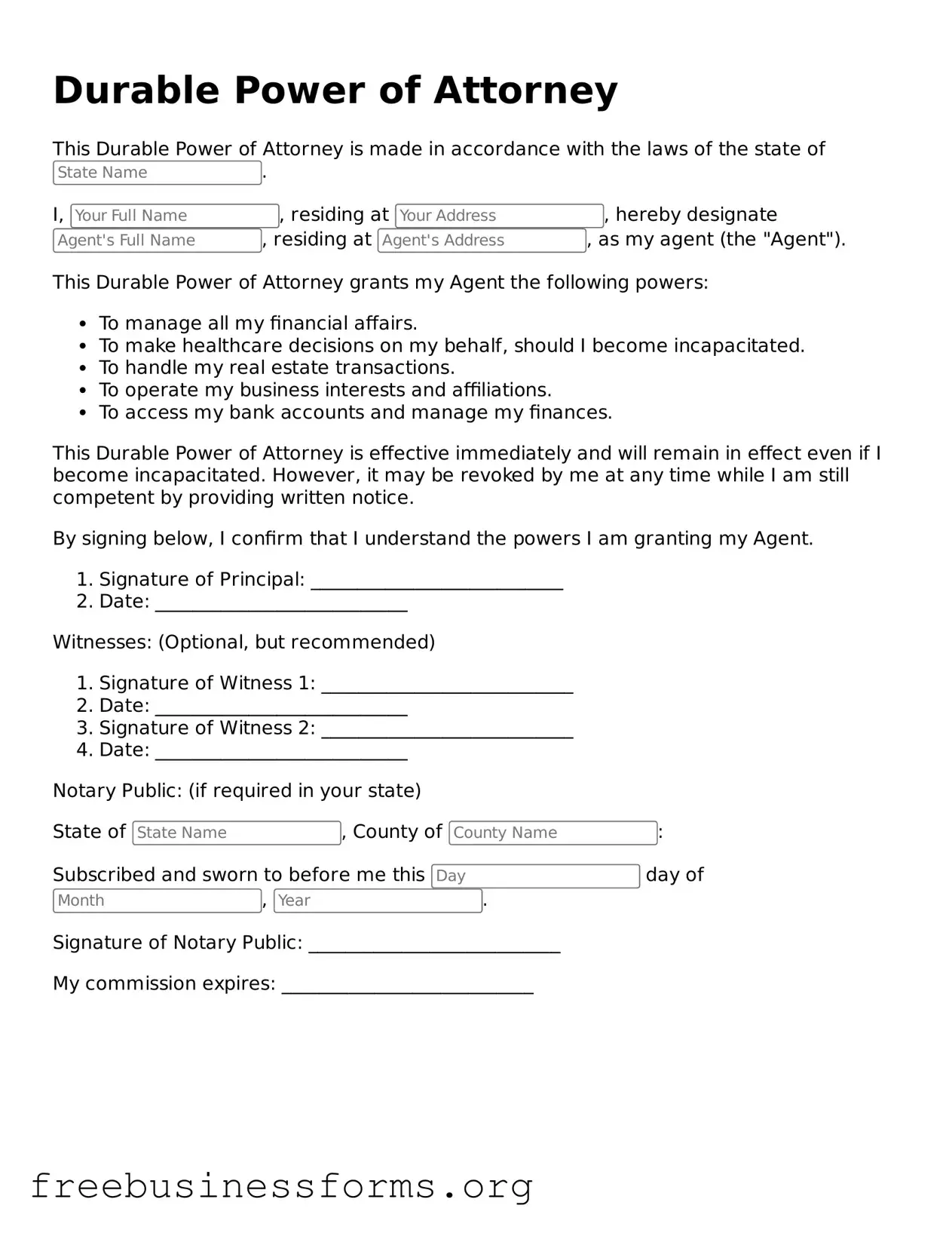Official Durable Power of Attorney Form
A Durable Power of Attorney form is a legal document that allows one person to grant another person the authority to make decisions on their behalf, even if they become incapacitated. This form ensures that your financial and medical matters are handled according to your wishes when you are unable to do so yourself. It is essential for planning ahead and protecting your interests in unforeseen circumstances.
Open Form Here

Official Durable Power of Attorney Form
Open Form Here

Open Form Here
or
↓ PDF File
Quickly complete this form online
Complete your Durable Power of Attorney online quickly — edit, save, download.